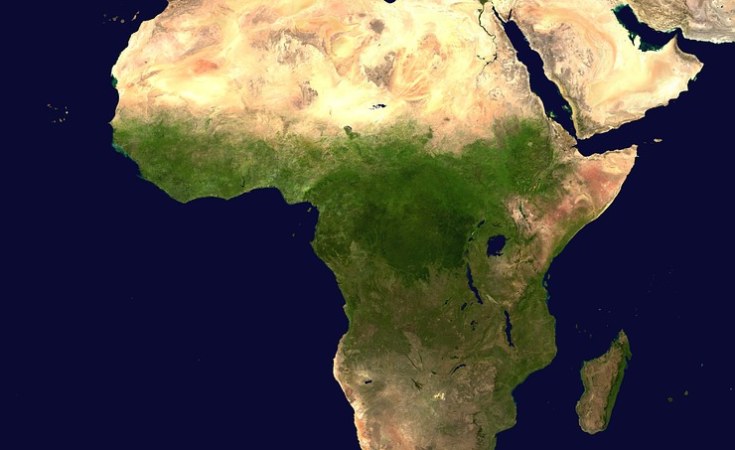A two-day event tasked with promoting the critical environmental role played by the world's rainforests has gotten underway in the Gabonese capital Libreville. The One Forest Summit is shining a light on the Congo Basin forests in particular - which are under-researched and underfunded despite being a major frontier against the impacts of climate change.
The summit is the brainchild of Gabonese President Ali Bongo and French President Emmanuel Macron, who announced it at last year's COP27 climate conference in Egypt.
The meeting aims to give a push to advancing scientific knowledge about the ecological value of rainforests.
"Forests potentially represent 20-30 percent of the solution to climate change," Gabon's minister of waters and forests Lee White said in opening remarks.
Tropical forests have long been recognised as a haven of biodiversity, but they're also increasingly acnowledged as a buffer against climate change for their capacity to absorb carbon dioxide emissions from the atmosphere.
The Congo Basin is the world's second-largest tropical rainforest after the Amazon.
Spanning six countries - Cameroon, Central African Republic, Congo, Democratic Republic of the Congo, Equatorial Guinea and Gabon - it's also the world's largest carbon sink and a haven to rare species.
Challenges
Rainforests are under threat from loggers in particular. Around 10 million hectares of forests were destroyed every year between 2015 and 2020 the UN says.
In tropical African forests, around a third of plant species are threatened with extinction, said Bonaventure Sonké, a biologist at the University of Yaoundé in Cameroon.
More research is needed, but only 10 percent of the funding for tropical forest research goes to the Congo Basin.
Sonké says this has to change.
"Fewer and fewer young researchers are trained due to lack of funding. If nothing is done all our conservation efforts will fall by the wayside," he told RFI.
"We urgently need to mobilise funds to train young researchers [...] so we can understand how the Congo Basin forests work."
Another challenge is how to develop "sustainable value chains" in forestry, which are currently lacking.
"If we produce sustainable wood, you have to be sure of selling it," a diplomat taking part in the discussions told RFI. "So we need companies ready to buy it, even though it will be more expensive."
Making the forests pay
Another priority is how to both monetise and preserve tropical forests for the way they support biodiversity and store carbon emissions.
Gabon became the first African nation to be recompensed through carbon credits for protecting its forests.
White said Gabon absorbed some 100 million tonnes of CO2 per year, meaning it was "well on the way to becoming a sustainable economy".
But some specialists told RFI paying three to five dollars per tonne of CO2 was nonsense and are calling for the price to be fixed at between 30 to 50 dollars.
Presidents from Congo, Angola, Equatorial Guinea and Central African Republic as well as co-hosts Emmanuel Macron and Ali Bongo are attending the summit, but there are doubts over what can be achieved.
"We can expect announcements, but they'll remain announcements" a green activist in Libreville told RFI.
The absence of two big players - DRC's president Félix Tshisekedi and Brazil's Luiz Inácio Lula da Silva - whose two countries are home to most of the world's tropical forests, is likely to hamper any major changes.
Macron timing
Meanwhile the presence of France's Macron is not to everyone's taste.
Gabon's civil society groups and opposition parties are questioning the timing of his trip - ahead of presidential polls this summer - saying it suggests support for leader Ali Bongo Ondimba, whose family dynasty has ruled the country for more than five decades.
"He has come to launch the campaign of his friend," Marc Ona, president of Environment Gabon, told RFI.
A French diplomat admitted the timing wasn't "the best" but insisted the discussions around the key and very topical issue of climate change showed the relationship between France and Gabon was evolving.
Meanwhile, France's ecological transition minister Christophe Béchu said protecting the world's tropical rainforests was just too important an issue to ignore.
"If we don't protect this specific area, it will be just impossible to respect the Paris Agreement or to stay at a reasonable degree of global warming," he said in an interview with Bloomberg.


